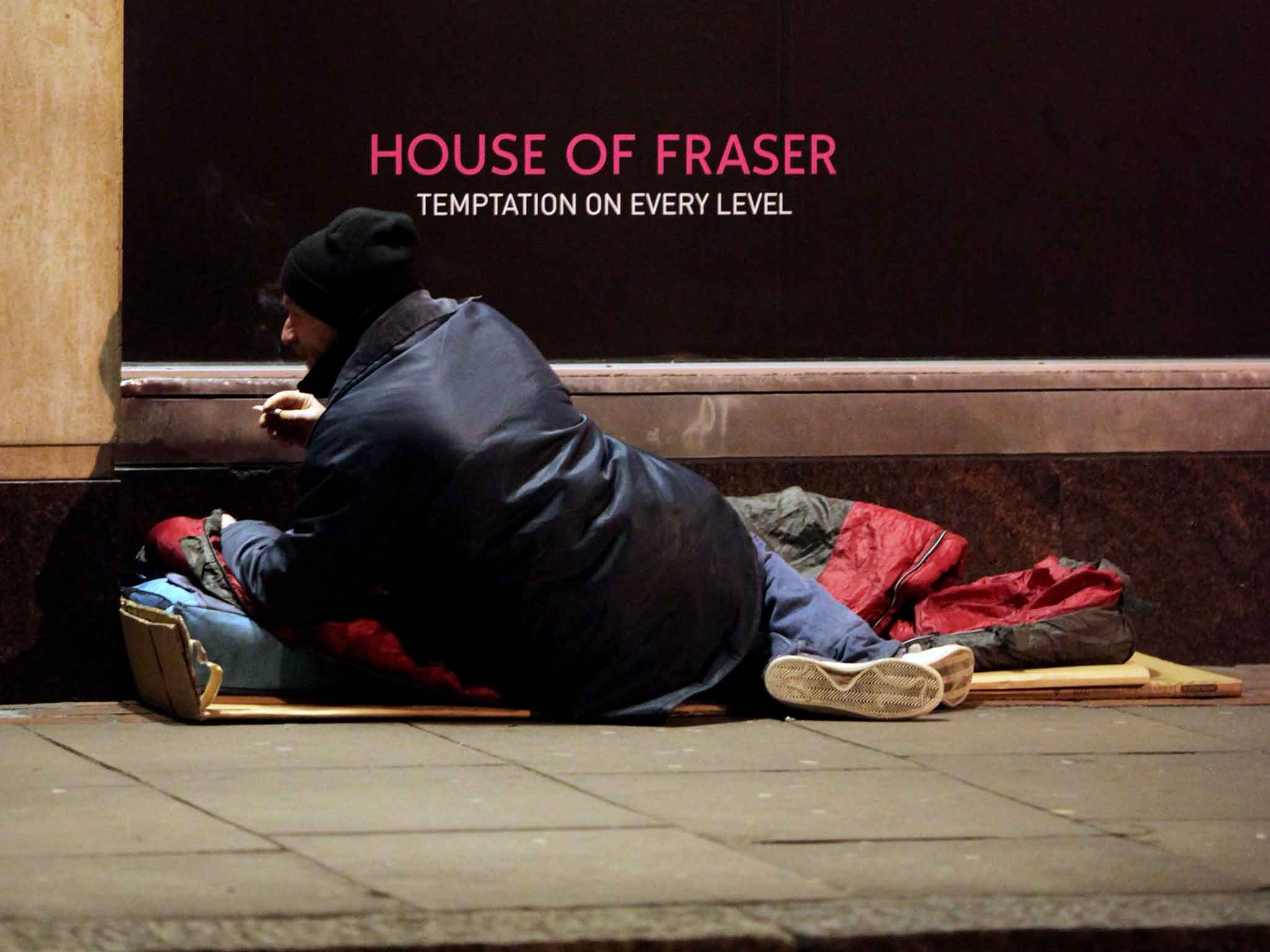Homelessness rises by 40% with soaring number of families sent to live in B and Bs
More than half of 5,630 households in B and Bs are families with children

Your support helps us to tell the story
From reproductive rights to climate change to Big Tech, The Independent is on the ground when the story is developing. Whether it's investigating the financials of Elon Musk's pro-Trump PAC or producing our latest documentary, 'The A Word', which shines a light on the American women fighting for reproductive rights, we know how important it is to parse out the facts from the messaging.
At such a critical moment in US history, we need reporters on the ground. Your donation allows us to keep sending journalists to speak to both sides of the story.
The Independent is trusted by Americans across the entire political spectrum. And unlike many other quality news outlets, we choose not to lock Americans out of our reporting and analysis with paywalls. We believe quality journalism should be available to everyone, paid for by those who can afford it.
Your support makes all the difference.The number of homeless families sent to live in bed and breakfasts has soared by a quarter in the last year, official figures show. Homelessness in England has risen by 40 per cent overall in the last five years, prompting campaigners to say the Government must urgently address the housing crisis and the impact of welfare reform.
On 30 June this year there were 5,630 households in B and Bs, more than half of which were families with children, according to the latest government figures. For the parents affected this often means being crammed into a small room with no kitchen for months on end, rather than being found a permanent home by their local authority.
Gavin Smart, deputy chief executive of the Chartered Institute of Housing, said it was “extremely worrying” to see rising rates of homelessness. He added: “We are particularly concerned about the big jump in the number of people trapped in bed and breakfast accommodation, including more than 2,500 families with children. This type of accommodation is often very poor quality and highly unsuitable, especially for families.”
In the last year, 55,090 households were accepted as homeless by their local council, 40 per cent higher than five years ago.
Chief executive of Shelter, Campbell Robb said: “These figures paint a grim picture of the devastating impact welfare changes and sky high housing costs are having on thousands of families in England. With cuts to welfare taking their toll, coupled with a dramatic shortage of genuinely affordable homes forcing millions into unstable private renting, it’s little surprise that so many are losing the fight to stay in their home.
“Many homeless families are then left to linger in unfit temporary accommodation, as overburdened councils struggle to find them anywhere else to live. Deeper cuts to welfare will do no more than add fuel to the fire of this growing crisis. The only way for the government to break the cycle of homelessness, is to invest in building homes that people on lower incomes can actually afford.”
There has also been a dramatic rise in the number of people being moved out of their local area for accommodation. Of the nearly 70,000 households living in temporary homes at the end of June this year, more than a quarter were in accommodation in another local authority district, up 25 per cent from last year.
The practice is most common in London - more than 93 per cent of those moved away from the area they had been living were sent by London authorities. Councils in the capital have been accused of “social cleansing” for their policy of moving out swathes of homeless people to accommodation elsewhere.
The loss of a private tenancy is the single biggest cause of homelessness. More than 16,210 households became homeless after being evicted from a privately rented home in the last year, three times as many as five years ago.
Jon Sparkes, chief executive of Crisis said: “Homelessness rose by 5 per cent between April and June compared to the same time last year. Nearly a third of these people became homeless following the ending of a private tenancy. This is totally unacceptable and reflects the desperate state of our private rented sector.”
A spokeswoman from the Department for Communities and Local Government said: “Statutory homelessness acceptances are now less than half the 2003-04 peak. We have made over £1bn available since 2010, to prevent and tackle homelessness and support vulnerable households.”
Join our commenting forum
Join thought-provoking conversations, follow other Independent readers and see their replies
Comments